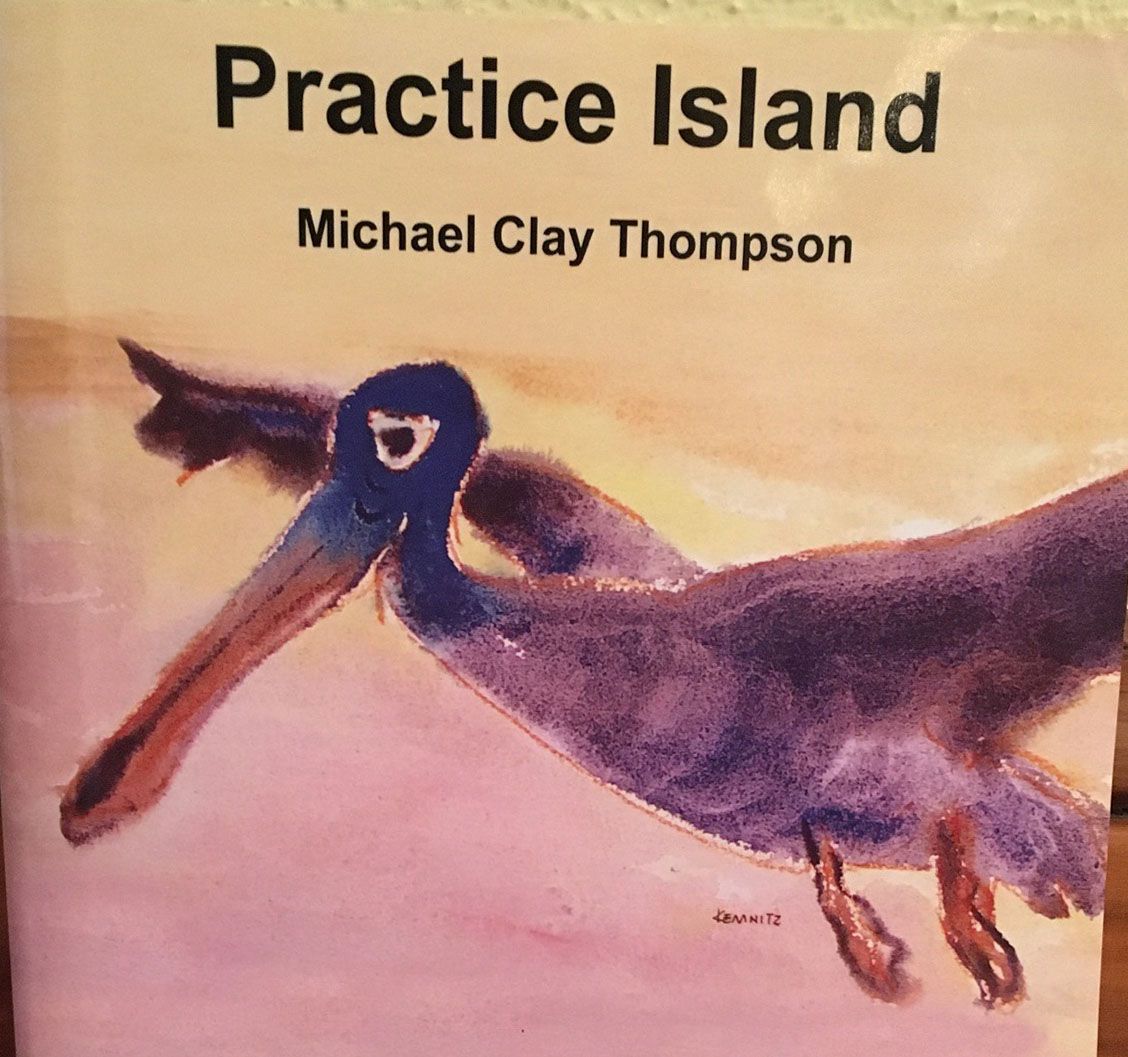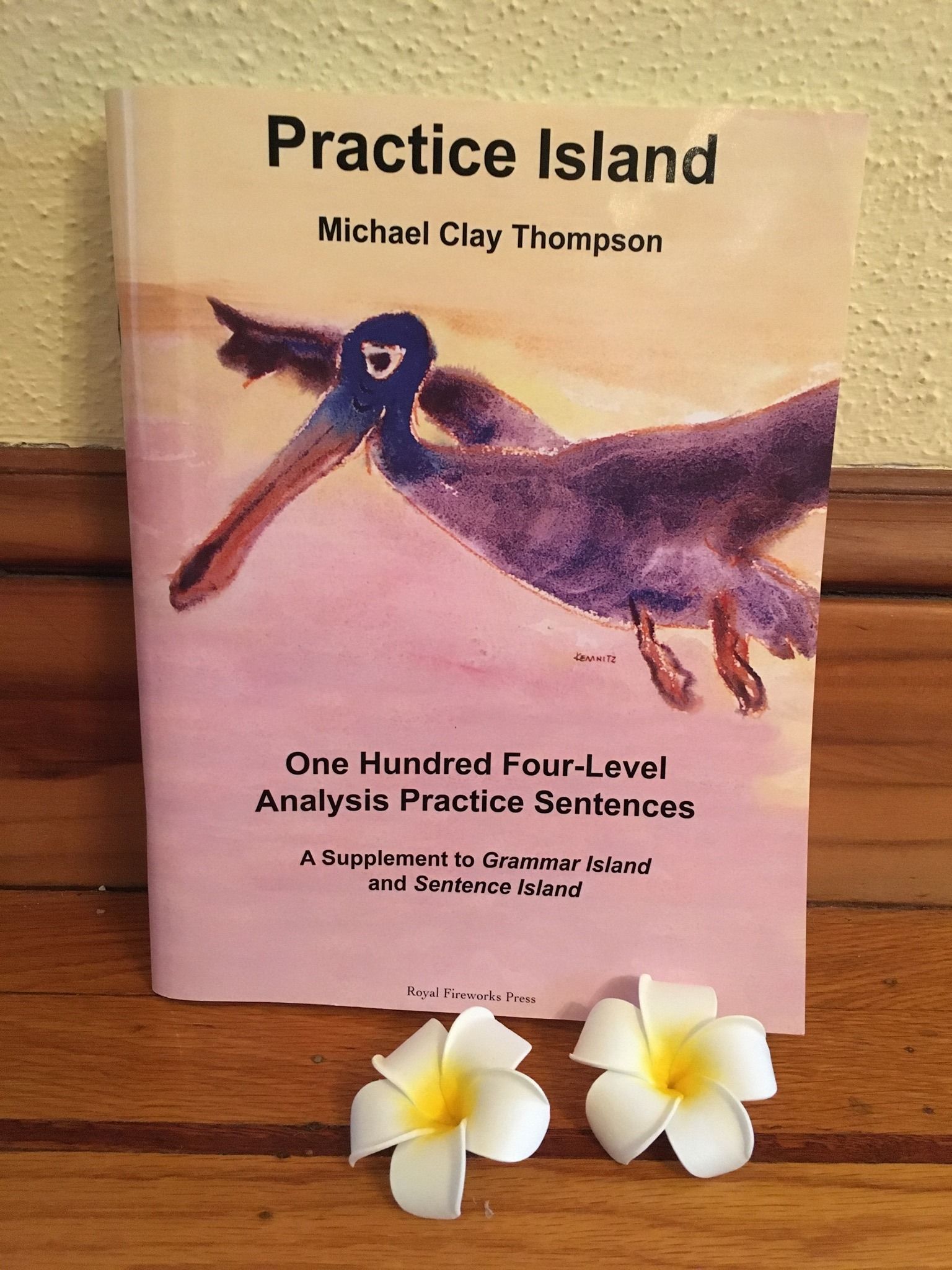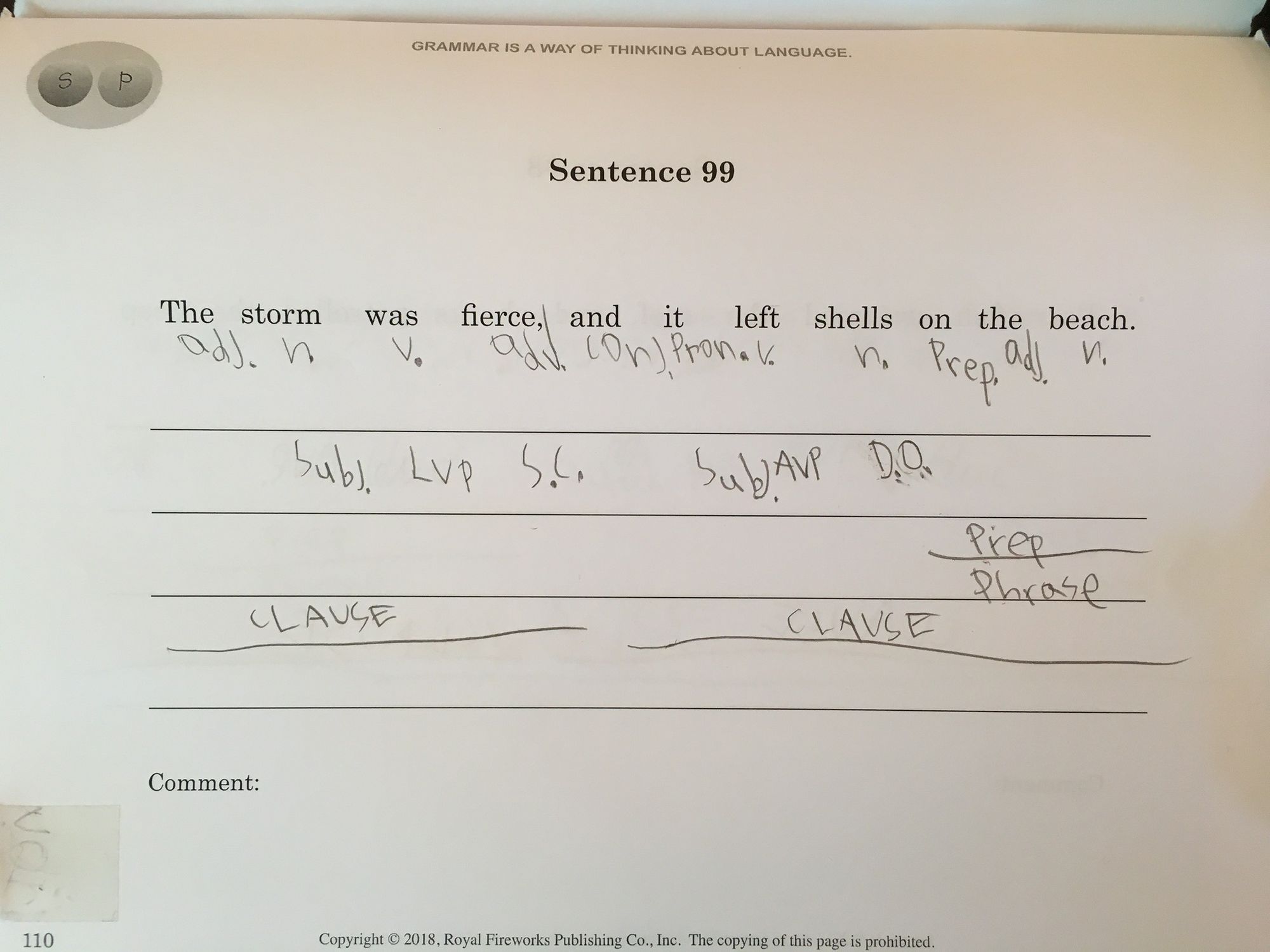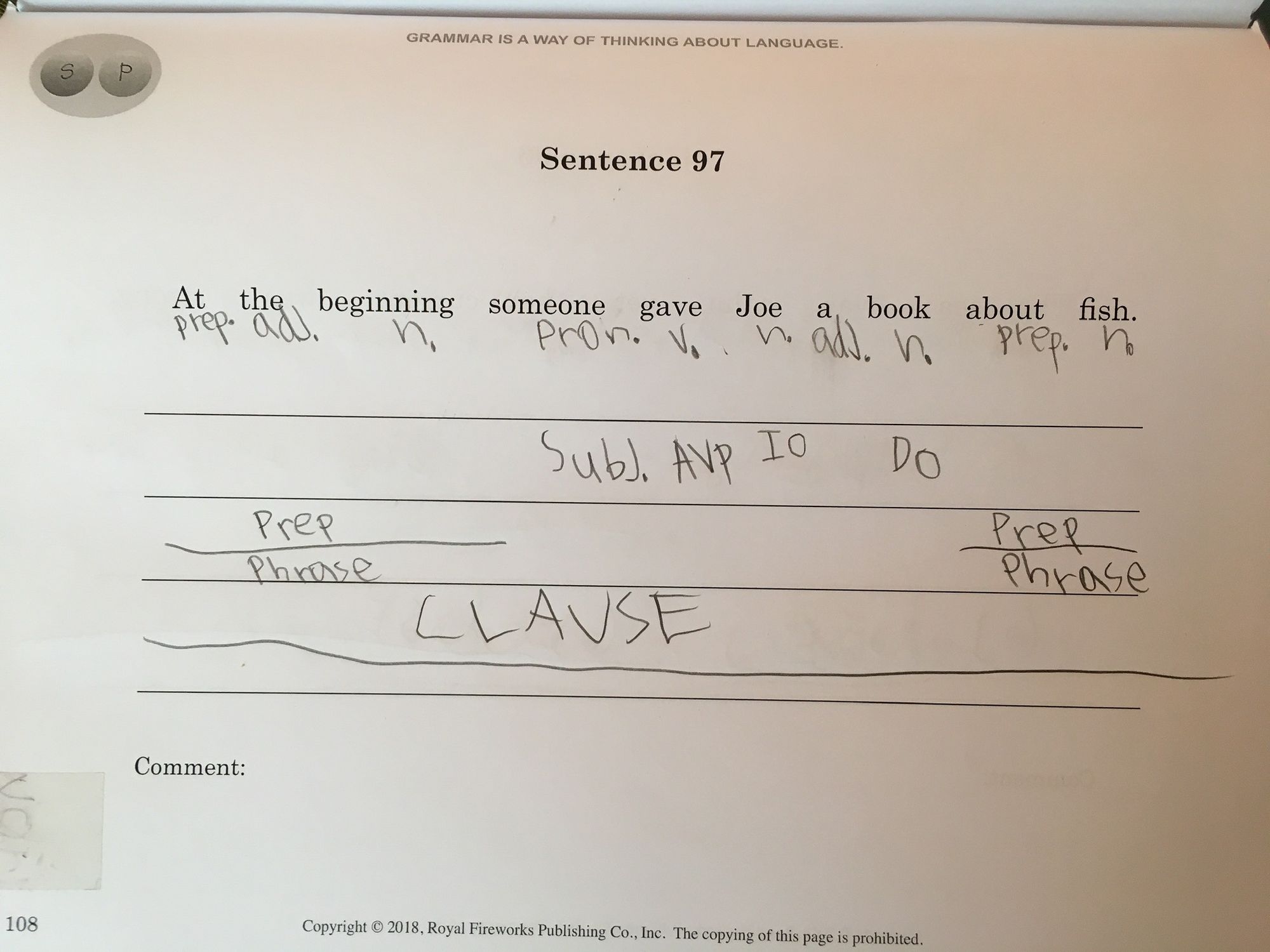Sentence analysis

The Michael Clay Thompson language arts curriculum comes with a big ol’ book of 100 sentences to practice grammar analysis. Each sentence is analyzed in four ways: 1) each word’s part of speech (noun, adjective, conjunction, etc.), 2) identify the parts of the sentence (subject, action or linking predicate, objects, etc.), 3) phrases (so far just prepositional phrases), 4) clauses (so far just identifying where they are, not what kind).
There are wonderful pedagogical discussions being had about the utility of this kind of grammar instruction. (The delightful British poet laureate Michael Rosen recently wrote an opinion piece for The Guardian about the futility of teaching some obscure grammar-y thing called “fronted adverbials.”) In short: it’s really not strictly necessary. Even if you had this kind of granular instruction, it’s questionable how much you retained, and how it has impacted your ability to communicate ideas clearly. Plenty of successful professional writers haven’t learned this stuff; plenty of English majors will tell you it’s not really relevant to their studies.
On the other hand, understanding why each part of a sentence is there is a not-useless skill; I’ve seen Wanda use her ability to analyze sentences in other contexts to more clearly identify what’s going on in a sentence, and to help her figure out the meaning of unfamiliar words. In other words, it has paid off for comprehension, but admittedly in a pretty minor way. But there has been a meatier payoff in other ways:
When I started these sentences with Wanda, she was REALLY not into them. Since I wasn’t totally sold either, I told her we didn’t have to do all 100. She said she wanted to do all 100, though. Go figure!
We do them three times a week, on Mondays, Wednesdays, and Fridays. At first, they were frustrating. The words and sentences did things she hadn’t been explicitly taught, things that surprised her. She loves math, and this didn’t behave the way that math does. It was less about a small set of inviolable rules. With time and exposure, she shifted from being pissed off at the strange things the language was doing to being curious about what was going on. She started to appreciate the benefits of the flexibility in how sentences can be structured, as we talked about the way re-ordering the words could shift the meaning slightly, or improve clarity. ***She started to form opinions about the language choices.*** Bingo!
She also started to get really good at analyzing the sentences. She started turning to a dictionary to look up the parts of speech—once I assured her that this was absolutely not cheating, that using a dictionary is a skill we want to develop. Before long, she was a champ at identifying prepositional phrases, and she liked that once she had done that, she could narrow in on the sentence’s core meaning. She started to be able to apply logic in identifying the objects, or subject complements, or adverbs.
She busts them out super quickly now, it only takes her about five minutes to label the parts, and then we take about another five minutes to check the answers in the teacher’s manual and discuss what was interesting about the sentence.
Talking about language, and how ideas are shared, that’s good stuff, even just one sentence at a time.
But here’s what I REALLY love about the practice sentences, and it has nothing to do with grammar or even language arts:
Wanda has developed some ace skills for work management. Because there are so many sentences, and she wants to finish the whole book, we can’t really skip days or it’ll drag out too long. But she knows that some days she won’t be up for it, or there will be something else she wants to focus on. Her solution is to sometimes do an extra sentence. She thinks about how “future Wanda” will appreciate having some flexibility.
She keeps track of how many extra sentences she’s banked by using some artificial plumeria flowers I have left over from party decorations. Each Monday/Wednesday/Friday, she has the option of not doing the sentence, if she has a flower. She saves them for days she really needs them. Before we take a big break, she’ll bank up a bunch of them, but usually she has about two banked.
The flowers aren’t something she has earned from me, they aren’t a reward, they aren’t extra credit. I’m always very clear with her that this is her system, that she’s choosing to use, to manage her own work. It’s just a great way to keep track, and to take good care of her future self. I’m BEYOND proud of her for the skills she’s developing for this kind of work organization and self-care. THE AGENCY!
She just finished the whole book of 100 sentences, and has now started on the second level book, another 100 sentences.
In summary! I came for the probably-unnecessary grammar instruction, I stayed for the thoughtful discussion about the nuance of language and the development of executive function skills (plus some dictionary-use icing). (Double-plus, as ever, I'm having fun learning things, too.)




